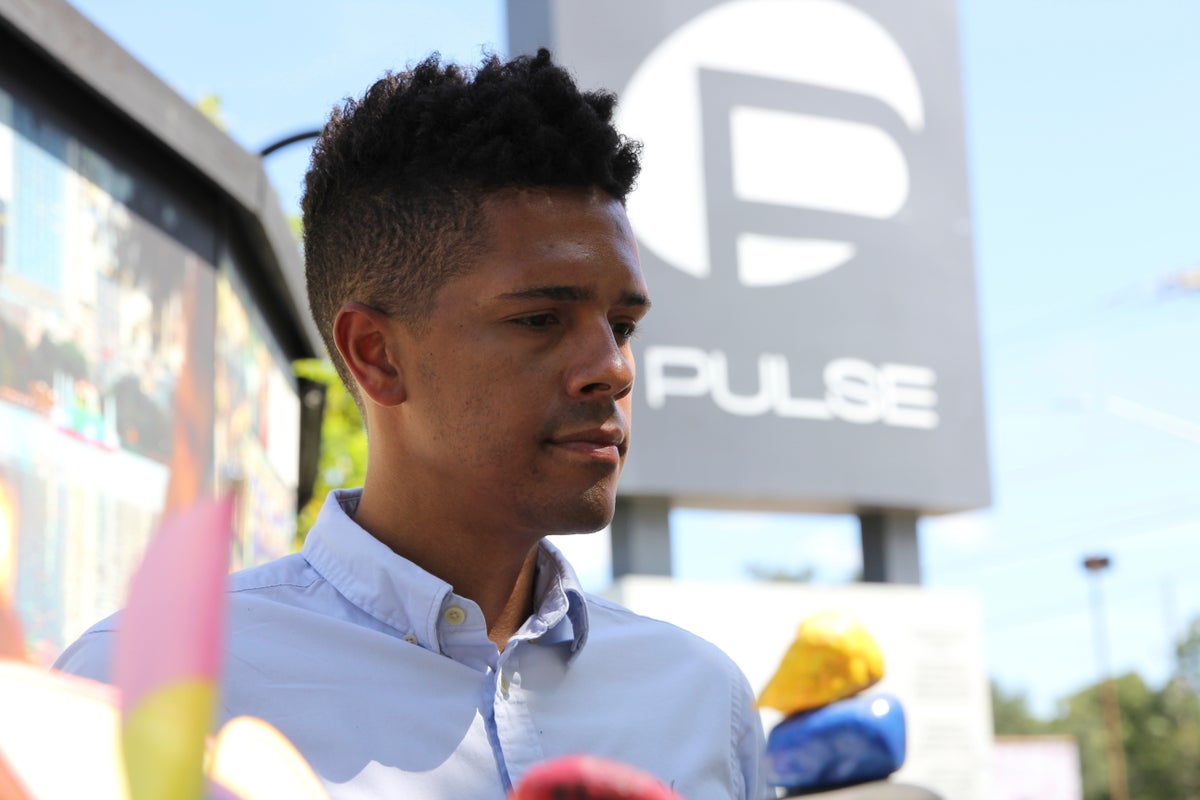
Pulse was more than a safe space for Brandon Wolf and his friends. The nightclub was a haven for members of Orlando, Florida's LGBTQ community — a place to be themselves without fear.
“It’s probably the first place I ever held hands with somebody I had a crush on," Wolf said. "Without looking over my shoulder first, it’s one of the first places I ever wore my skinniest pair of jeans without being afraid of what someone might call me."
On June 12, 2016, a gunman targeting the club's patrons killed 49 people there, including two of Wolf's best friends, and wounded 53. “It’s left such a hole in our hearts,” Wolf said.
After mass shootings, the loss felt by marginalized groups already facing discrimination is compounded. Some public health experts say the risk for mental health issues is greater for these groups — communities of color and the lesbian, gay, bisexual and transgender community among them.
The trauma is especially acute when the shootings happen at schools, churches, clubs or other places that previously served as pillars of those communities — welcoming and accepting spaces that are difficult to replace due to a lack of resources or the sociological and historical impact they have had.
“Folks from marginalized communities are already dealing with the burden of ... discrimination and racism ... and the emotional toll that they take,” said Dr. Sarah Lowe, a professor with the Yale School of Public Health and a clinical psychologist who has researched the long-term mental health consequences of mass shootings and other traumatic events. “All these other stressors can not only increase risk for mental health problems following a mass shooting, but they also increase risk for further loss of resources.”
As a result, there is the potential for members of such marginalized communities to leave or for the community itself to shut down, said Alan Wolfelt, a grief counselor and educator at the Center for Loss and Life Transition in Fort Collins, Colorado.
“That is why it is vital to support these communities, acknowledge their grief openly and honestly, and then help them rebuild their community in terms of meaning and purpose while realizing they have been totally transformed,” said Wofelt, who provides mental health services and education for individuals and communities that have experienced loss.
Club Q, a gay nightclub in Colorado, says it will eventually reopen at the same location, but with a new design and a permanent memorial, to honor five people killed last month in a targeted shooting. Club Q was a sanctuary for the LGBTQ community in the mostly conservative city of Colorado Springs, patrons said.
Pulse will not reopen. The site where it operated is now a memorial, and supporters plan to convert it into a permanent museum. The club's closure has deeply scarred the LGBTQ community, which has tried to "re-create the sense of belonging” that Pulse had, Wolf said.
“I live next to a few other LGBTQ establishments and those are really important, but there was something truly special about Pulse and the community that we were able to create here,” he said. “For communities like ours, safe spaces are lifelines. They’re the refuges we carve out in a world that threatens violence against us every time we walk out the door.”
In some cases, traumatic events threaten basic necessities for marginalized groups, increasing the risk for mental health issues, said Lowe, the clinical psychologist.
Tops Friendly Market in Buffalo, New York, was closed for two months after 10 Black shoppers and workers were fatally shot during a racist rampage. During that time, there was no grocery store on the East Side.
Mother Emanuel AME Church in Charleston, South Carolina, was founded in 1816 and became a pillar of the African American community in the state's Lowcountry region.
On June 17, 2015, a self-avowed white supremacist who targeted a Bible study at the church killed nine Black congregants. One of the victims was minister Myra Thompson, sister of South Carolina State Rep. JA Moore.
“My sister was a servant to the other parishioners at the church, and she dedicated a lot of her life and her love to serving others through the church,” Moore said.
The church reopened for Sunday services four days after the massacre. It was important to send a message, he said.
“Even seven years later, the church is still resilient and still rebuilding and still serving," Moore said. “I think the message that reopening up after such a horrific event is the story of African Americans in this country, the history of this country, where no matter our trauma and our pain and the horrors that we have to endure, we recognize that it’s an obligation as Americans to continue to push forward.”
Wolf, now 34, has also pushed forward. Following the shooting at Pulse, he became an advocate and activist for the LGBTQ community and now works as press secretary for Equality Florida.
He said Orlando nonprofit organizations that support the LGBTQ community have expanded their services, and other LGBTQ-owned bars and restaurants have grown their customer base. Wolf believes the city has become more inclusive since the shooting.
“While I think there’s a hole and there will always be something missing where Pulse used to be, I also think it’s beautiful that we’ve chosen to take the important components of what made Pulse, Pulse, and infuse them into every which way we live our lives in this city,” he said.







